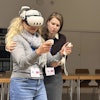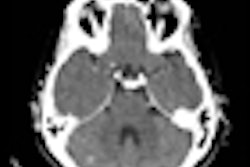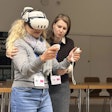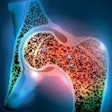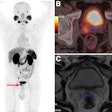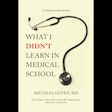
LONDON (Reuters), Apr 4 - Scientists using imaging scans on soldiers have identified brain patterns that signal post-traumatic stress, a finding they said on Friday could eventually help diagnose the disorder sooner.
The scans of 42 U.S. soldiers who had served in Iraq or Afghanistan in the recent past showed that, compared with healthy veterans, those suffering from post-traumatic stress disorder (PTSD) had marked differences in some areas of brain activity.
The study, presented at the World Psychiatric Association Congress in Italy, suggested identifying certain brain patterns could one day help diagnose PTSD before symptoms appeared and better track treatment, the researchers said.
"It could make a huge difference because at the moment physicians rely on the patient reporting certain symptoms," Rajendra Morey of Duke University in North Carolina, who the led the study, said in a telephone interview.
"The field is still in its infancy, but this raises the possibility that one day we may be able to see the disorder in the body as plainly as we now can see conditions such as heart disease and cancer."
PTSD is an anxiety disorder that can be caused by wartime trauma such as being wounded or seeing others hurt or killed.
Symptoms range from irritability and outbursts of anger to sleeping difficulties, extreme vigilance, and difficulty concentrating. Sufferers can also persistently relive the event to such a degree that it affects their lives.
The Duke team used functional MRI (fMRI) scans to examine differences in brain activity between soldiers with and without PTSD when performing a series of short-term memory tasks that tested their ability to stay focused.
The researchers analyzed the area of the brain involved in helping people remain focused and another associated with processing memory, two regions affected by PTSD.
They found these areas in soldiers with the disorder were much more active compared with healthy volunteers.
The scans also showed marked differences between the two groups in the area of the brain governing the sense of self.
"Collectively, these findings raise the possibility of another brain pattern being potentially useful for distinguishing PTSD," said Florin Dolcos, a researcher at the University of Alberta in Canada, who also worked on the study.
By Kylie MacLellan
Last Updated: 2009-04-03 11:39:46 -0400 (Reuters Health)
Related Reading
PTSD sufferers store memories differently in brain, January 23, 2004
Brain region smaller in people with PTSD, July 9, 2003
Area of brain injury linked with PTSD symptoms in children, August 5, 2002
Copyright © 2009 Reuters Limited. All rights reserved. Republication or redistribution of Reuters content, including by framing or similar means, is expressly prohibited without the prior written consent of Reuters. Reuters shall not be liable for any errors or delays in the content, or for any actions taken in reliance thereon. Reuters and the Reuters sphere logo are registered trademarks and trademarks of the Reuters group of companies around the world.



